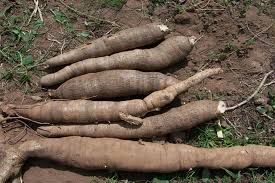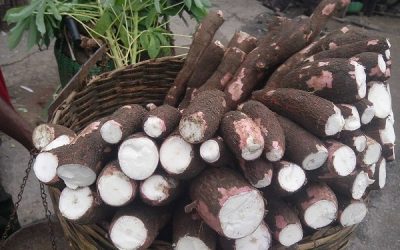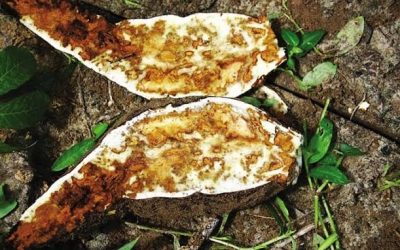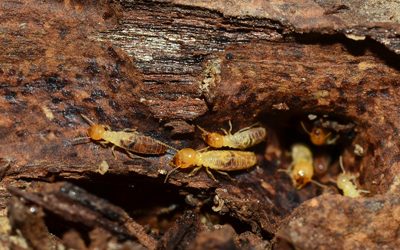Soil Management System for Organic Cassava Farming.

Cassava is usually grown in a savanna climate but can be grown in extremes of rainfall. In most areas, the Cassava plant does not tolerate flooding. In dry areas it loses its leaves to conserve moisture, producing new leaves when rains restart. It takes 18 or more months to produce a crop under adverse conditions such as dry or cool weather.
Cassava does not accept freezing conditions. It tolerates a wide range of soil pH values from 5.5 to 6.5 and is most productive in full sun conditions. Although Cassava can produce a crop with nominal inputs, best yields are recorded from fields with average soil fertility levels for food crop production and regular moisture availability. Cassava is grown on low fertility sandy soils without any soil improvement or soil and water conservation. Cassava will be grown well in best drained sandy loam soils with 10 to 12 hours day length, 10 to 30°C temperature, and 500 to 2500 mm/year precipitation.
Thick sandy loam upland soils are perfect for Cassava. If the soil is clayey, drainage is a must and should for this plant. At the time of land preparation, you can add organic nutrients, structure, and improve the ability of the soil to hold water. If you cannot avoid Cassava growing on steep slopes you can grow Cassava varieties with early, much and low branching habit to cover the ground rapidly and properly against rain erosion. You can also make ridges across the slopes and mulch the ridges to decrease erosion.
Good soil is one of the most significant factors essential for high Cassava yields. The crop needs a suitable root room to expand, so the best soil is loose (friable) with an abundance of available nutrients for healthy plant growth. Soils can be acid with a pH of less than 7 or alkaline with a pH greater than 7. Cassava can tolerate soils within a wide range of pH values from 4 to 8. Though, the best pH range for growing Cassava is 5.5 to 6.5. Limestone must be incorporated into more acidic soils at 3 to 4 months before planting, using a rate of 2 to 4 tons per hectare, depending on the level of acidity.
Liming acid soils have many benefits. It reduces the uptake of aluminium and iron, which are toxic to Cassava plants; provides calcium for proper cell wall formation; and enables good bacteria to decompose soil organic matter making nutrients available for plant growth. One piece of big areas full of natural fertility with water resources that had not been under chemical control for a long time is recommended. Soil and water analysis before organic production is necessary to avoid the residual effect of chemical substances.


